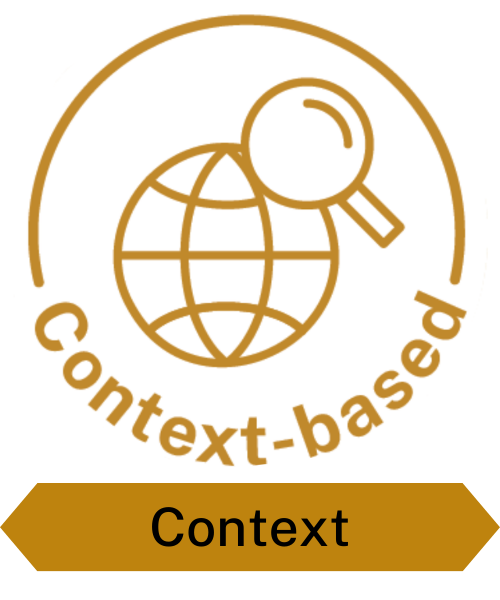- ANU Library
- LibGuides
- new production templates
- Transdisciplinary Problem Solving
- Context (context-based)
 |
A key aspect of transdisciplinary problem solving is being context-based (see ANU Framework for Transdisciplinary Problem Solving). |
Approaches to understanding and dealing with problems depend on the circumstances, which have three important dimensions.
First is what might be thought of as big-picture context, which includes the history of the problem and ways it has been addressed in the past; its geography and whether there are place-based aspects; and political context, especially what is feasible given the system of government and who holds power. Cultural, economic, demographic and similar circumstances also fit into this dimension and most aspects of big-picture context are covered by many humanities and social science disciplines. However, general references from those disciplines are not included here.
The second dimension of context is the structural and cultural aspects of the organisations dealing with the problem (i.e. organisational context). For example, if the problem is enhancing a country’s cybersecurity, the approach taken will vary depending on whether the organisation is a university computer department or a law firm or a government department focused on health records. These are examples of structure. Cultural aspects include willingness to collaborate with others and the breadth of collaborations entertained.
The third dimension is individual context, also known as positionality. This includes a person’s life experiences, race, gender, class, age, ability etc (all the issues covered under pluralism) and how those influence their approach to a problem. Positionality is often highlighted in the decolonisation literature.
Some references deal with the general importance of context or two or all three subtopics. Otherwise references are dealt with under the relevant subtopic, i.e.:
Page Contact: ANU Library
+61 2 6125 5111
The Australian National University, Canberra
TEQSA Provider ID: PRV12002 (Australian University) |
CRICOS Provider Code: 00120C |
ABN: 52 234 063 906
Contact ANU |
Copyright |
Disclaimer |
Privacy |
Freedom of Information

